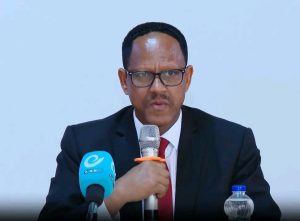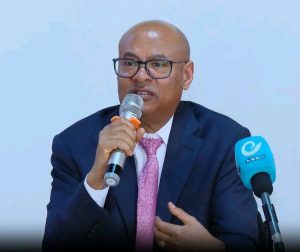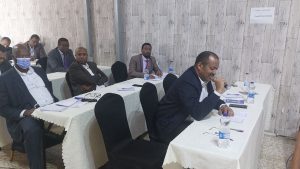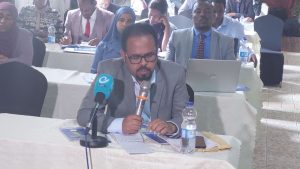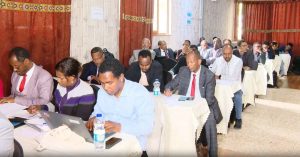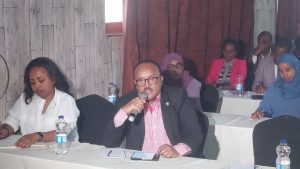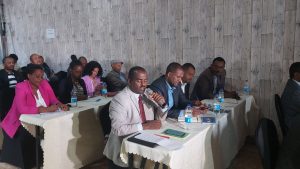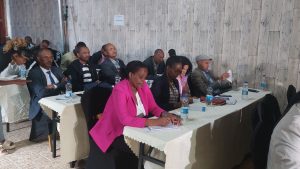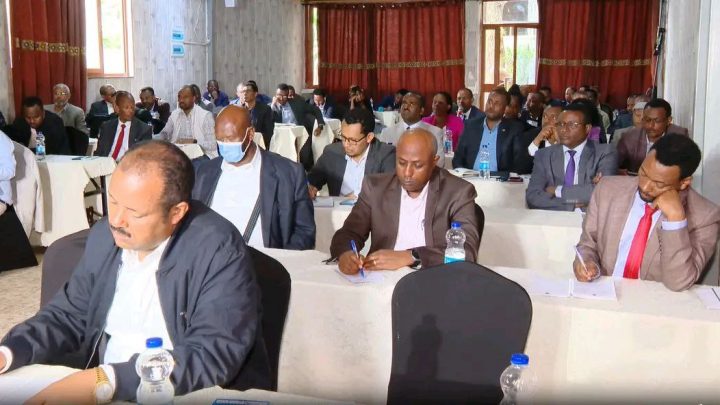
The Consortium of Ethiopian Public Universities ( CEPU ) and the GIZ-Ethiopia, STEP Programme co-organized a platform of discussion on the theme of Ethiopian Public Universities Autonomy Bill on April 8, 2023, in Bishoufu, Liesak Resort Hotel. The discussion was held in the presence of the FDRE House of Peoples’ Representatives Standing Committee on Human Resource Management, Employment Allocation and Technology Affairs, a representative from FDRE Ministry of Education, and Public University Presidents.
The Chairperson of the Standing Committee, Hon. Dr. Negeri Lencho explained the topic of university autonomy has continued to spark a great deal of academic and political debate around the world, and Ethiopian higher education cannot be different. Today, as higher education is becoming more globalized, dynamic, more concerned about competitiveness based on knowledge production, and increasingly affected by both government regulations and market mechanisms, university autonomy and reform efforts have become a key area of focus for any higher education system and its reform process at present.
Dr. Negeri further noted that alternative model of public university governance is advocating the transformation of the university system in order to respond to the challenges resulting from new emerging global knowledge economic contexts.
In principle, it is possible to consider university autonomy as an asset to our public universities. In other words, public universities need autonomy to compete for the best minds on a scale that increasingly transcends national borders.
However, university autonomy should not imply or interpreted as a withdrawal of the Ministry of Education and the government of Ethiopia from the entire university system. Instead, both the MoE and the Government should create the proper regulatory and financial environment for autonomous universities to operate effectively both in the local contexts and international standards.
In short, autonomy is not conceded by the MoE or by the Government of Ethiopia ,but greater university autonomy is gained by the Ethiopian Public Universities on the basis of scientific merits, multi-faceted innovative and problem solving research out puts, to mention but few, that can contribute to the 21st century knowledge economy and transform Ethiopia.
In the final remark Hon. Dr Negeri stressed that at present international universities are organizing themselves to face new challenges and attract the best researchers and teachers who have the state of the art teaching knowledge base, skills and pedagogy, such as ICT-enabled pedagogical competence to respond to the ever changing 21st century mobility of knowledge along with its complex higher education landscape to address the quality of education, and it for this reason that the Ethiopian Government enacted this draft public university autonomy bill as part of enabling and helping universities to stand by their own feet and delivery their mandates.
Prof. Tassew Woldehanna, Board Chairperson of the CEPU and President of Addis Ababa University on his behalf expressed his grave concerns on the following issues: 1. The draft Bill does not fully grant administrative autonomy of Public Universities, instead it explains academic freedom which is not a serious problem. 2. The Bill also does not grant freedom from the FDRE Ministry of Education and the Ministry of Finance, the bottlenecks has continued to remain in place and this is more of a hindrance than a help concerning public university autonomy.
In a similar vein, many public university presidents expressed their concern about the Bill’s shortcomings related with freedom on the procurement and financial management of the universities which are predominantly left to the FDRE Ministry of Finance. The presidents said that such issues should be carefully dealt with if true public university autonomy to be practiced in Ethiopia.
In addition, the presidents raised and argued the issue of the role of Chancellor in the Bill. They said that the role , assignment and remuneration of the Chancellor should be clearly indicated in the Bill.
Moreover, the presidents suggested the candidacy of some senior universities, such as Jimma, Bahir Dar, Hawassa, Gonder as a role model autonomy universities similar to that of Addis Ababa University ( AAU).
Furthermore, some participants argued that the mandates, in the Bill, given to the presidents are not enough to execute his/her duties in a more meaningful way given the magnitude of public universities in Ethiopia.
Finally, Hon. Dr. Negeri , Dr. Solomon Abraha and Prof. Tassew reflected on the issues raised by the participants of the workshop and they said that valuable input were gained to review the Bill before it gets final ratification from the FDRE House of Peoples’ Representatives and become a working law for the Public Universities’ Autonomy in Ethiopia.
